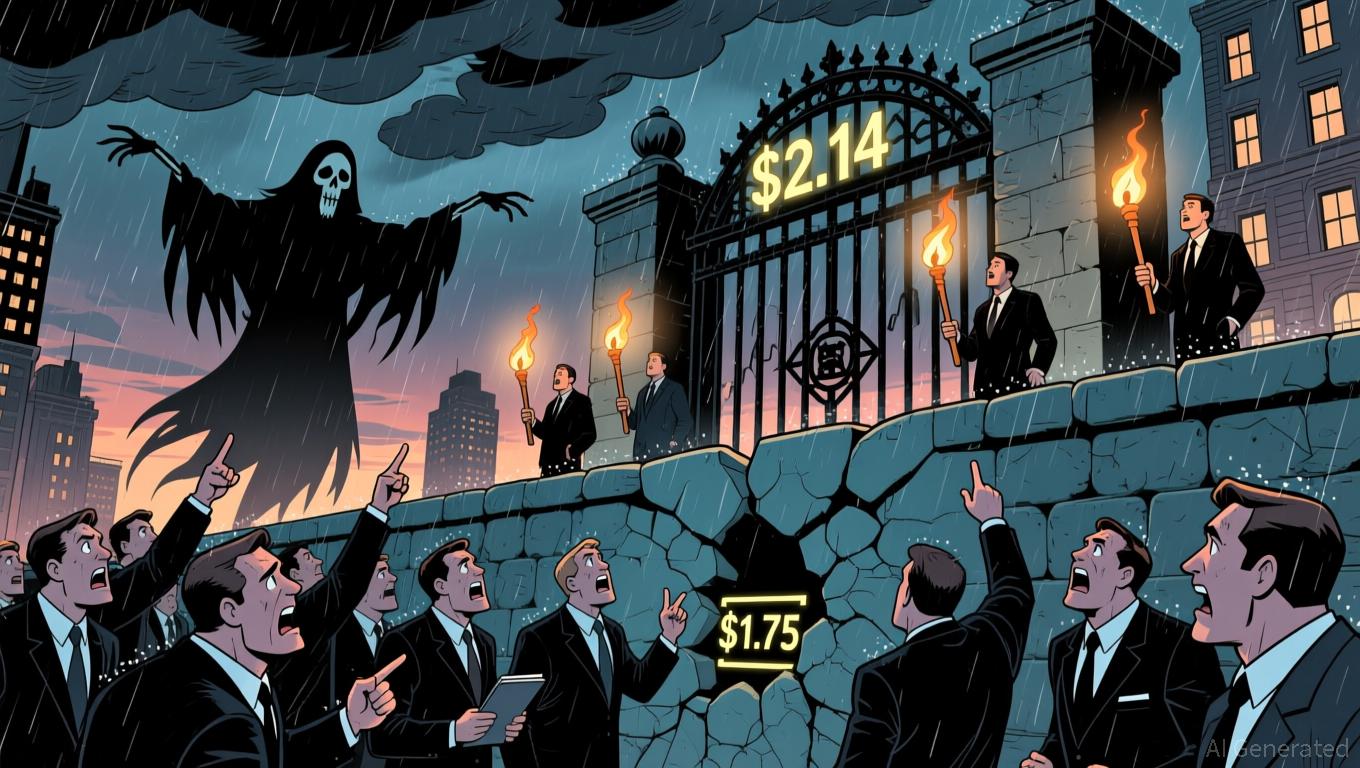Bitcoin Updates: Institutions Increase Bitcoin ETF Investments During Market Volatility
- U.S. Bitcoin ETFs saw $238M net inflow on Nov 21, reversing weeks of redemptions, despite BlackRock’s IBIT logging a $523M outflow earlier in the month. - Fidelity’s FBTC and Grayscale’s BTC attracted $192.9M inflows, reflecting a shift to lower-cost ETFs amid volatile markets and regulatory uncertainty. - Institutional investors like Harvard boosted IBIT holdings by 257%, signaling long-term confidence in Bitcoin as a strategic reserve asset despite short-term turbulence. - Ethereum ETFs faced $262M out
U.S. Bitcoin exchange-traded funds (ETFs) saw an unexpected net inflow of $238 million on November 21, reversing a trend of significant withdrawals in recent weeks, as reported by SoSoValue. This turnaround occurred even though BlackRock's iShares
Throughout November, Bitcoin ETFs have seen outflows totaling $2.96 billion, with

This divergence highlights the foundational influence ETFs have on Bitcoin’s price action. While ETFs have typically fueled Bitcoin rallies, this November—usually a strong month for the cryptocurrency—
Ethereum ETFs have performed even worse, with $262 million in total outflows since November 17
Market turbulence has also encouraged new product launches.
Institutional players, however, remain undeterred.
The overall ETF market presents a mixed picture. While Bitcoin ETFs
As the market processes these shifts,
The next few weeks will challenge the durability of Bitcoin ETFs. With November
---
Disclaimer: The content of this article solely reflects the author's opinion and does not represent the platform in any capacity. This article is not intended to serve as a reference for making investment decisions.
You may also like
XRP News Update: XRP ETF Buzz vs. Death Cross: Can the $1.75 Support Level Remain Intact?
- XRP faces critical junctures near $2.14 as Grayscale's spot ETF (GXRP) launch looms, with $1.75 support level pivotal for short-term stability. - A death cross pattern raises bearish concerns, suggesting potential 55% price drop to $1 if technical indicators fail to hold. - Institutional crypto products like Leverage Shares' 3x ETFs and 1inch's liquidity pools highlight growing institutional interest amid market volatility. - DeFi struggles with $12B idle capital while projects like Mutuum Finance aim to

Bitcoin Updates: Negative Derivatives Meet Optimistic Institutions as Bitcoin's Future Remains Uncertain
- Bitcoin fell below $85,500 amid bearish derivatives positioning, macroeconomic uncertainty, and dormant wallet sell pressure, with puts dominating calls at $85,000 strike price. - Institutional bulls like Michael Saylor's Strategy reported $2.8B Q3 profits from BTC holdings and pledged continued accumulation during the slump. - The Bitcoin for America Act proposes tax payments in BTC without capital gains liability, aiming to create a Strategic Bitcoin Reserve and modernize U.S. finance. - Derivatives pl

Bitcoin Experiences Sharp Decline as Macroeconomic Conditions Change: The Impact of Increasing Interest Rates and Heightened Regulatory Oversight on Cryptocurrency Values
- Bitcoin's 2025 late-year drop from $126,000 to $80,000 reflects heightened sensitivity to Fed policy shifts and regulatory pressures. - Fed officials like Susan Collins signaled "mildly restrictive" policy, crushing rate cut expectations and triggering 70% decline in December cut odds. - Regulatory crackdowns on crypto mixing and mining contrasted with institutional buying (e.g., Cardone Capital's $15. 3M Bitcoin purchase) amid market volatility. - Political uncertainty (60% expect Trump-era crypto gains
Bitcoin’s Abrupt Price Swings and Institutional Outflows: An In-Depth Analysis of Market Dynamics and Liquidity Challenges
- Institutional investors are shifting capital from Bitcoin to AI infrastructure, driven by higher returns in 2025. - Bitcoin's liquidity has declined, with order book depth dropping to $14M by mid-2025, exacerbating volatility. - Structural shifts, including mining repurposing and AI-focused capital flows, threaten Bitcoin's hash rate and market stability. - Alternative projects like XRP Tundra and AI-driven risks challenge Bitcoin's dominance, complicating investor strategies.